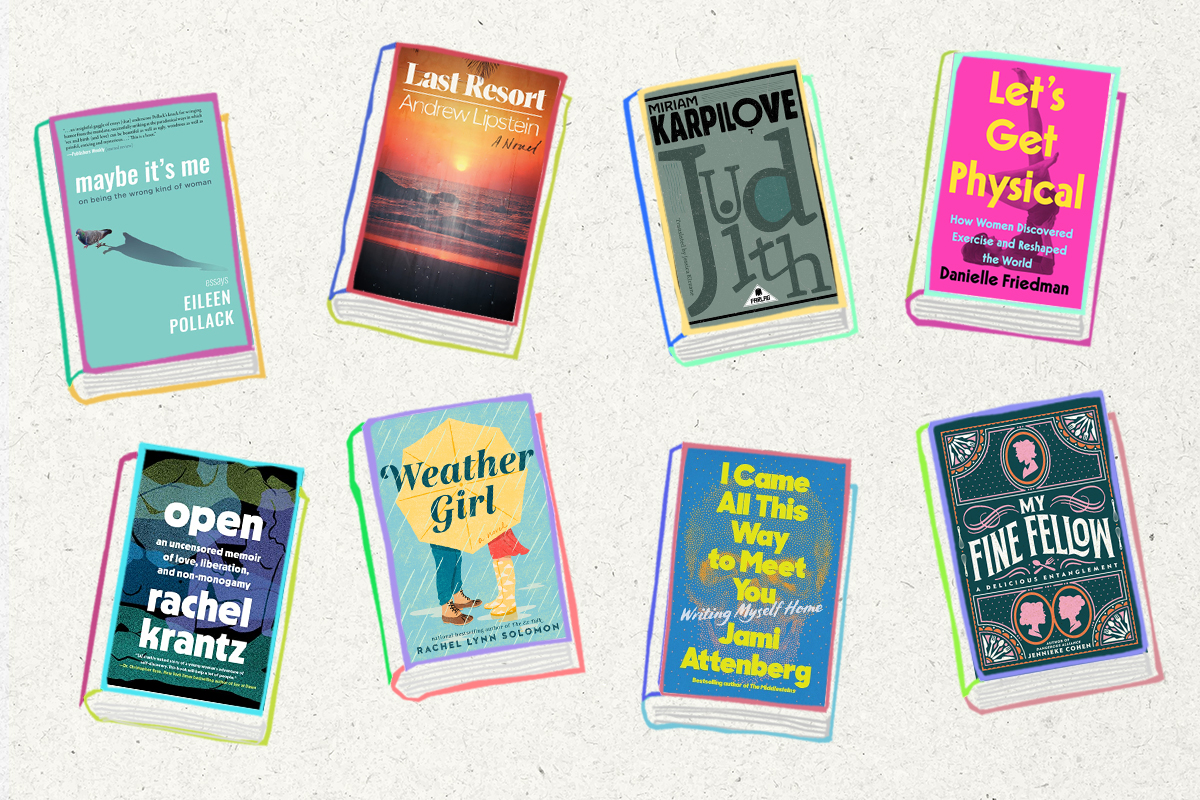Happy New Year! It’s 2022, which means it’s a new year for Jewish books of all types. My 2022 reading goals remain the same as my goals for the past few years: read often, read a diversity of authors, read in translation, and read books that make me feel all the feelings. Thankfully, Jewish authors are here to help me do just that. As ever, this list is shoppable on Bookshop.
Here are eight new books we’re excited to read this January:
1. My Fine Fellow by Jennieke Cohen (January 11)
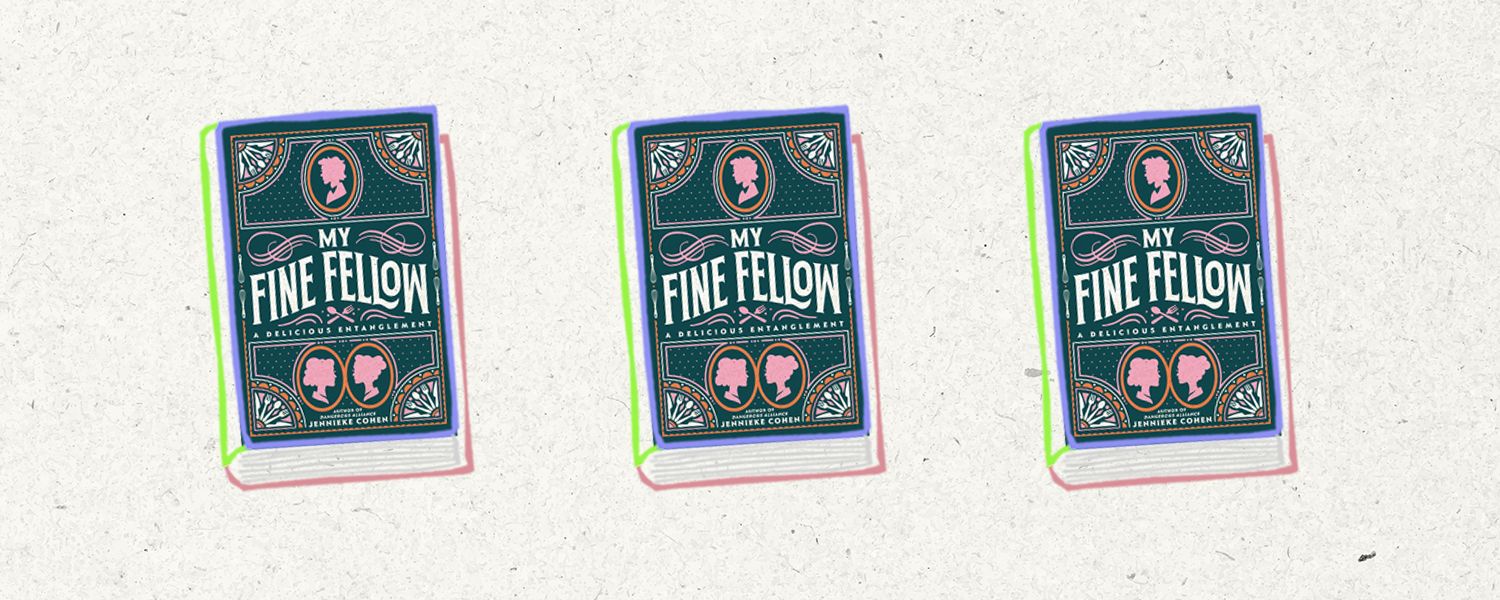
“My Fine Fellow” is a delightful YA historical romance with a Jewish twist — what more could you want?! The protagonist is a Filipina British girl, and the love interest is a Jewish British boy, both pulling from author Jennieke Cohen’s Filipina Jewish heritage. Set in an alternate 1800s London, “My Fine Fellow” is a gender-bent “My Fair Lady.” In Cohen’s world, Culinarians are the crème de la crème of high society; they consult society’s elite to create gorgeous food and confections. We meet two Culinarians — Helena Higgins, top of her class at the Royal Academy, and Penelope Pickering, a Filipina Brit who wants to prove the value of non-European cuisine to all of England. And then there’s Elijah Little, who “has nothing to his name but a truly excellent instinct for flavors. London merchants won’t allow a Jewish boy to own a shop, so he hawks his pasties for a shilling a piece to passersby—but he knows with training he can break into the highest echelon of society.” When Penelope and Helena meet Elijah, they set out to pull off a project never seen before, and turn Elijah into a gentleman chef. There’s romance, but there’s also a deep understanding of antisemitism, racism and classism. A retelling you won’t want to miss.
Read if you’re into: historical YA romance. The Jewish angle: Author Jennieke Cohen is Jewish, and Elijah, the titular “fellow,” is Jewish. Get it here.
2. Judith: A Tale of Love & Woe by Miriam Karpilove (trans. from the Yiddish by Jessica Kirzane) (January 18)
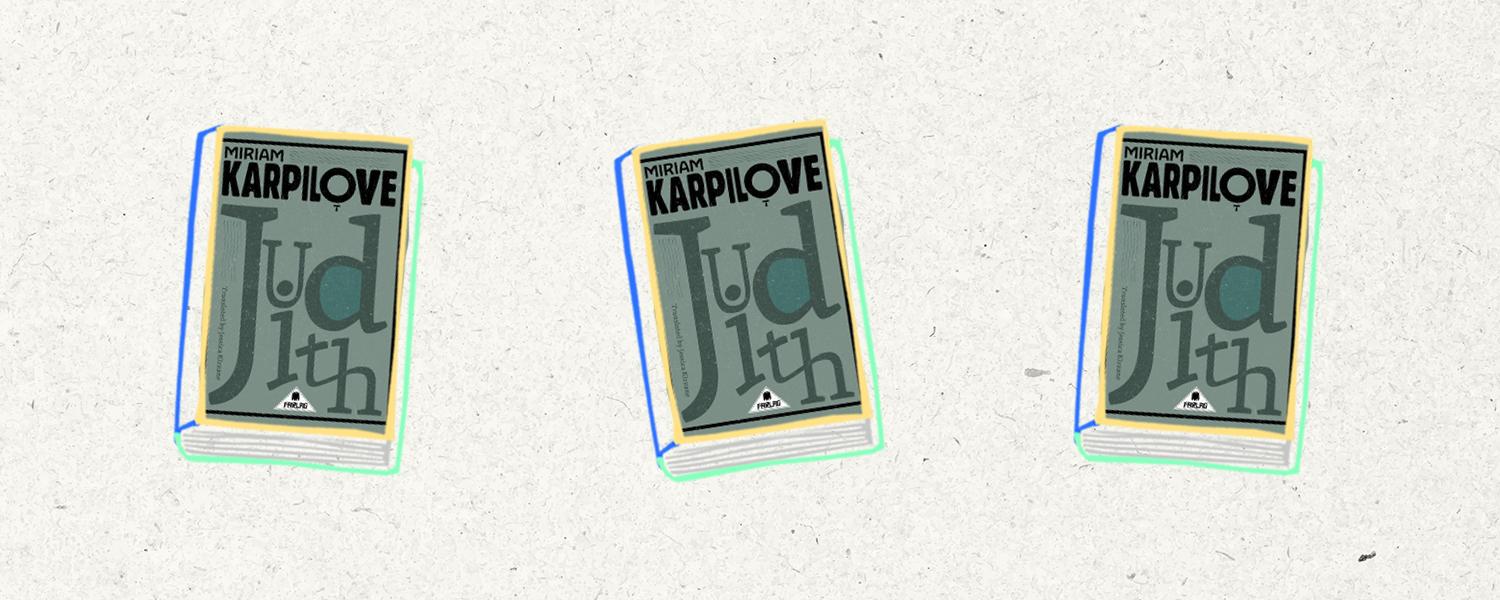
Miriam Karpilove was a prolific Yiddish author of novels and short stories. Born in 1888, she emigrated to the United States in 1905 — and her poetry, stories, novels, dramas and more appeared in a wide variety of newspapers. “Yudis: a Geshikhte fun Liebe un Leyden” (published 1911) is newly translated by Jessica Kirzane as “Judith: a Tale of Love and Woe.” (Kirzane also translated Karpilove’s 1918 novel, “Diary of a Lonely Girl, or the Battle against Free Love.”) Told entirely through letters from Judith to Joseph, we trace their relationship. In the introduction, we learn Joseph has died by suicide and all of Judith’s letter are found in his possession. When we first meet Judith, she’s a teenager infatuated with Joseph, a city boy who came to their shtetl for his cousin’s wedding. They plan to make their way to America, but Joseph chickens out and stays behind. Throughout, there’s a background of pogroms, antisemitic violence and radical politics in Russia. As Kirzane writes in her translator’s note, “It represents one of [Karpilove’s] earliest attempts to express through her preferred genre of romance fiction her disillusionment with the gender dynamics of radical Jewish youth culture.”
“I think if someone had told me before that I would be so completely in love, I wouldn’t have believed them. I’ve been told that I rely too much on logic, and until I’m able to lose control of my reason I will never be able to love with my whole heart. That’s not true. I can see now that I love you with my whole heart, my whole soul, and my whole mind,” Judith writes to Joseph in an early letter. Ultimately, “Judith” is a powerful, tragic love story.
Read if you’re into: epistolary novels, love stories, tragedy, translations from Yiddish. The Jewish angle: Both author and translator are Jewish, and the story is very, very Jewish. Get it here.
3. Weather Girl by Rachel Lynn Solomon (January 11)
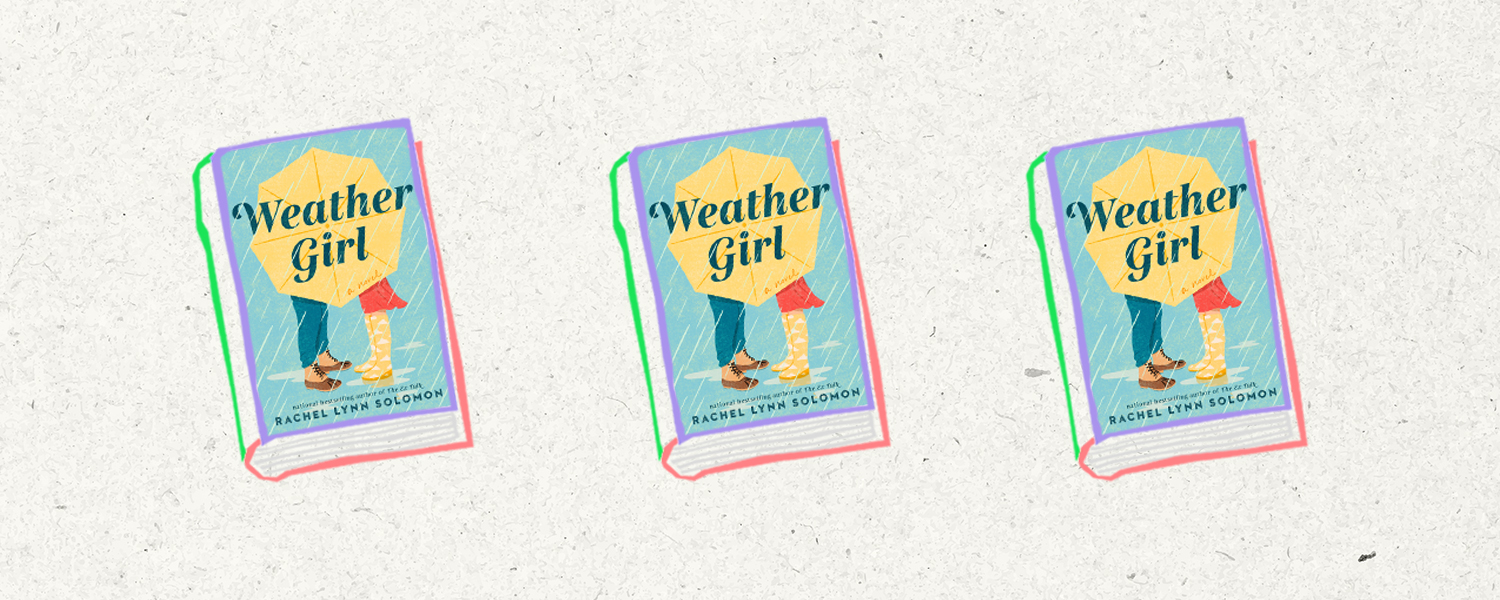
Jewish meteorologist Ari Abrams loves her job reporting the Seattle weather for the local news. However, her boss, weatherwoman Torrance Hale, is not as present as Ari wants — she’s stuck in a never-ending battle with her ex-husband Seth, the station’s news director. Ari links up with Jewish sports reporter Russell to try and get Torrance and Seth back together — they want to “Parent Trap” their bosses to make the atmosphere at the station better. Naturally, their meddling leads to a romance between the two reporters. But Ari is struggling with her own mental health — plus Russell has his own complicated family. Ari is a deeply relatable Jewish heroine, and Solomon expertly weaves Jewish culture and traditions into the plot.
Jasmine Guillory, one of my all-time favorite romance authors, blurbed “Weather Girl,” writing, “That feeling you get when you curl up on the couch on a rainy Saturday with a great book in one hand and a spiked hot chocolate in the other: That’s the feeling you get when you read Weather Girl. This book is cozy, comforting, thought provoking, and it’ll make you feel warm from the inside out.” Solomon deftly handles mental health and family crises in the background of a blossoming, delightful romance between two Jewish reporters, and “Weather Girl” is a fabulously nuanced romance novel. There’s also a pivotal scene at a bat mitzvah that is guaranteed to make you feel all the feelings. Perfect for snowy (or rainy) winter days.
Read if you’re into: swoony, real Jewish romance!! The Jewish angle: Author Rachel Lynn Solomon is Jewish, as are our protagonists, Ari and Russell. They’re perfectly imperfect Jewish characters. Get it here.
4. Maybe It’s Me: On Being the Wrong Kind of Woman by Eileen Pollack (January 11)
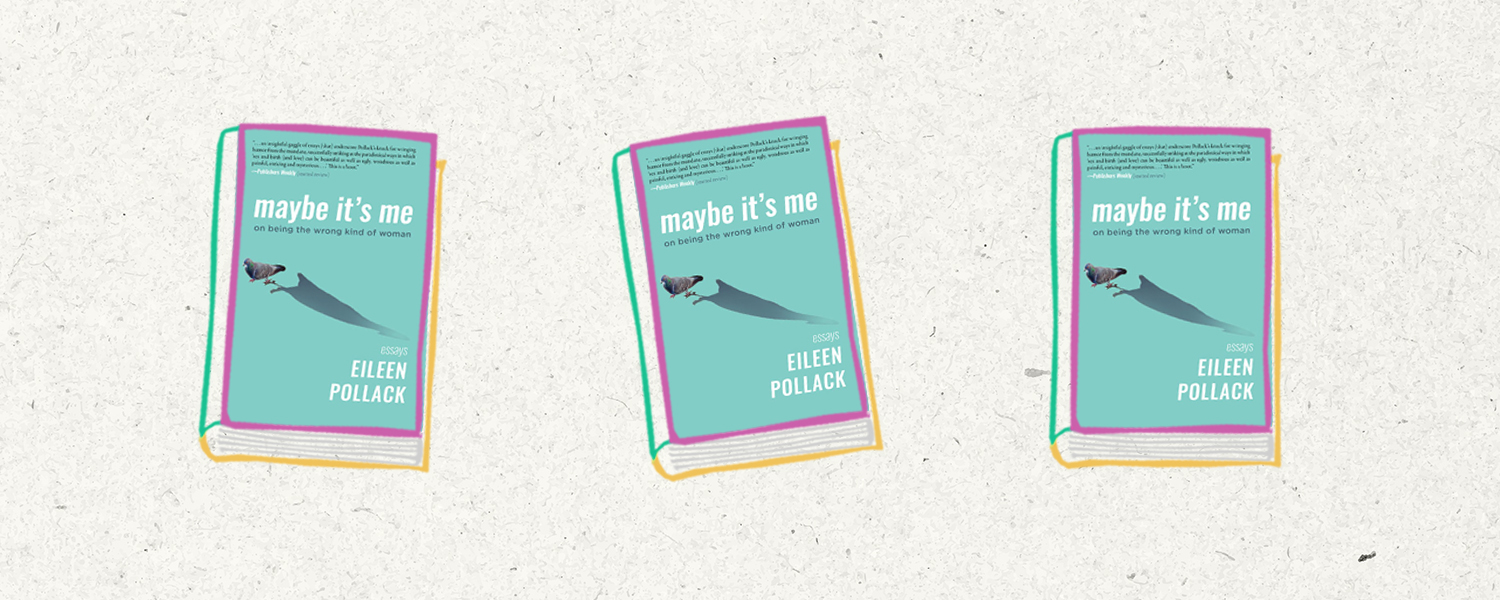
Eileen Pollack grew up in the Jewish Catskills, where her grandparents owned and operated Pollack’s Hotel. She became one of the first two women to graduate from Yale with a BS in physics, writing about her experience in “The Only Woman in the Room: Why Science Is Still a Boys’ Club” in 2015. Her new collection of autobiographical essays takes us through Pollack’s life — a few have been published elsewhere, including “I Tried to Raise a Jew and He Turned Out a Communist” in Kveller and “Righteous Gentile” which was originally in “The Harvard Review” and then “Best American Travel Writing 2018.” The latter is an example of Pollack at her best — she writes about traveling to Poland with her Polish Catholic boyfriend, reflecting on how her own grandparents fled the country but now “Judaism has become trendy” there. As Kirkus writes, “more compelling work from a unique mind.”
Read if you’re into: essay collections full of Jewish humor and candor. The Jewish angle: Author Eileen Pollack is Jewish, and much of her subject matter dives into Jewish topics. Get it here (goes to Amazon, not Bookshop).
5. Let’s Get Physical: How Women Discovered Exercise and Reshaped the World by Danielle Friedman (January 4)

Jewish journalist Danielle Friedman’s first book, “Let’s Get Physical: How Women Discovered Exercise and Reshaped the World” is a fascinating look into the perception of women’s bodies and the evolution of women’s exercise over time. Inspired by her viral feature for The Cut on the sexual history of the barre workout, which she writes about in the introduction, Friedman takes her readers through how women’s exercise developed in the 20th century. “By understanding women’s fitness history — the good and the bad, the silly and the serious — we can better understand ourselves,” Friedman writes. “And we can better harness exercise in ways that truly liberate all women.” She doesn’t shy away from the ways in which the fitness industry has a history of exclusion, and examines the injustices within the culture.
Many Jewish figures populate her narrative: There’s Lotte Berk, the German Jewish dancer who fled the Nazis and invented the workout that would become barre; Fred Lebow, a Holocaust survivor born Fischel Lebowitz, who founded the New York City Marathon; yoga teacher Richard Hittleman, who made a TV program about yoga, “Yoga for Health;” Soviet Jewish immigrant Lucille Roberts, who founded gyms for women in NYC; and Sadie Kurzban, a Cuban Jewish woman who pioneered cardio dance.
I, personally, knew I was going to be into this book when Friedman chose to begin with two epigraphs: one from Gloria Steinem on movements and motion, and this line from Elle Woods, aka Reese Witherspoon’s character in “Legally Blond”: “Exercise gives you endorphins, endorphins makes you happy. Happy people don’t kill their husbands!” I mean!!
Read if you’re into: reported cultural histories; thinking about fitness. The Jewish angle: Author Danielle Friedman is Jewish, as are a few of the figures she features. Get it here.
6. I Came All This Way to Meet You: Writing Myself Home by Jami Attenberg (January 11)
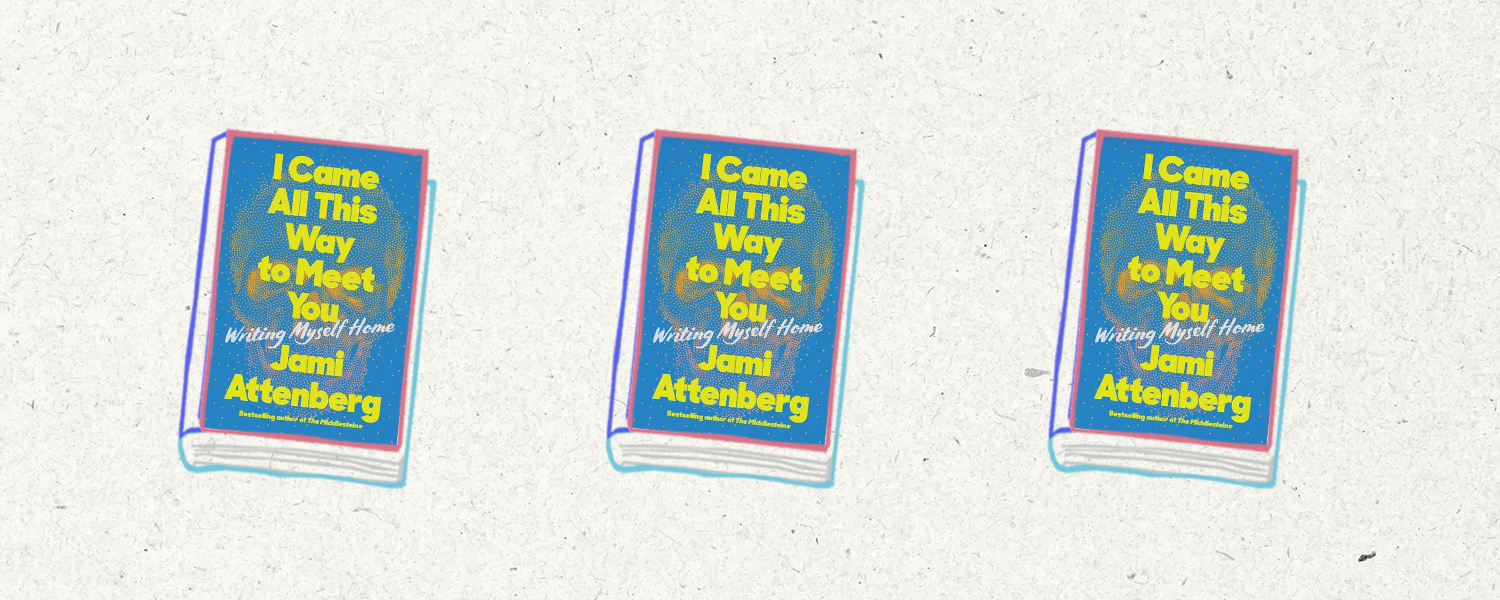
Jami Attenberg’s memoir “I Came All This Way to Meet You” is a look back at her life and writing. She travels from Brooklyn to New Orleans to Lithuania to Portugal, and her voice is clear and strong throughout. My favorite parts of the memoir are when Attenberg’s particularly Jewish humor shines through. For example, she writes of Marla, an older woman who managed her building in Brooklyn: “I gave her advance copies of all my books because she loved to read, and I appreciated a reader, and because I wanted her to like me, because I like it when older Jewish people like me, and also so things would get fixed, or at least so attempts would be made.”
Attenberg’s meditations on travel and finding one’s own sense of place are funny and smart, and there are so many pages I bookmarked to return to. “Our stories are all the same,” Attenberg writes. “It is just how you tell them that makes them worth hearing again.” I am so grateful to hear her story.
Read if you’re into: great memoirs, Jewish authors. The Jewish angle: Jami is Jewish. Get it here.
7. Last Resort by Andrew Lipstein (January 18)
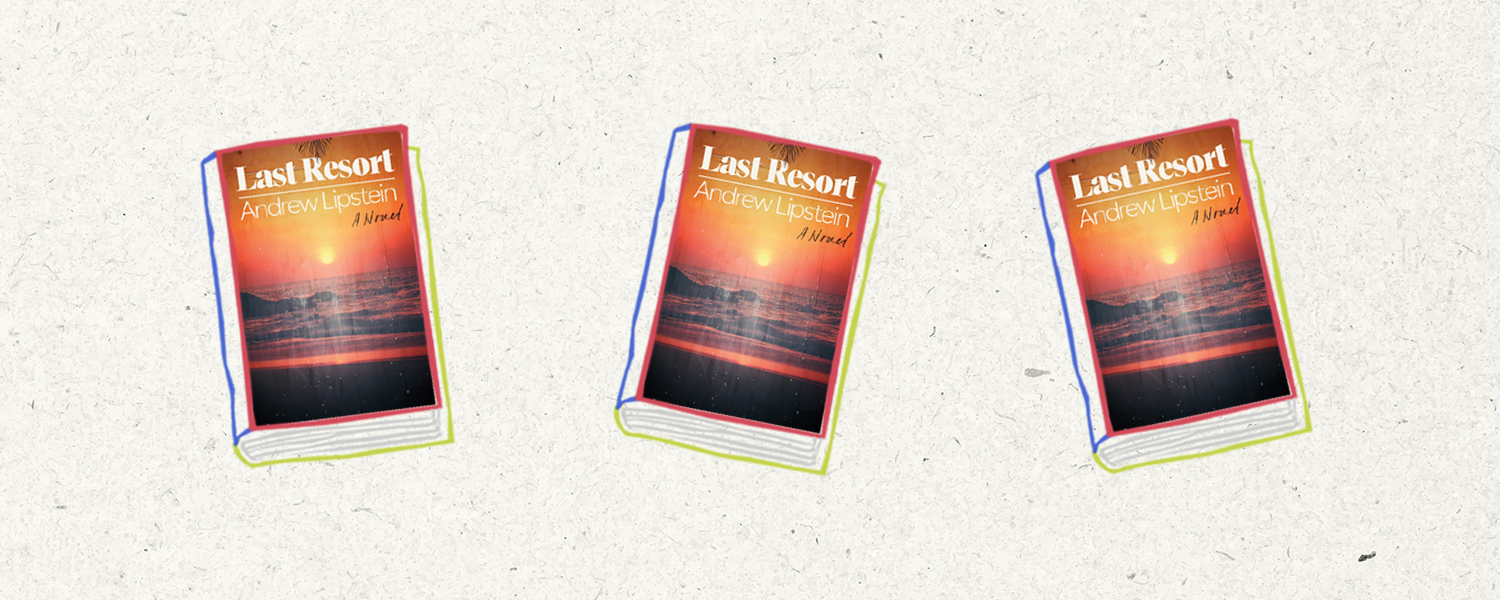
We all remember the Bad Art Friend, right? Well, Jewish author Andrew Lipstein must’ve predicted the future, because his novel “Last Resort” is basically bad art friend on steroids (and better). Caleb Horowitz is 27, and he’s just landed the literary agent of his dreams, who is excited to sell his manuscript. Caleb, however, has a secret: The idea for the novel came from a college rival, Avi Dietsch, who told him the story one drunken night. When Avi reads the manuscript, he sees it as complete theft. Who owns the story? Whose name gets to be on the book?
As Lipstein tweeted when the whole Twitterverse was talking about the New York Times story, “now would be an… interesting time to pre-order my book, about… a writer who steals someone else’s story…” He added, “If only there were an upcoming debut exploring the ethics of turning real people into characters, and what’s behind the instinct… !!!!!!” A complicated story of fame, ethics and whose story belongs to whom.
Read if you’re into: This is obvious, right? Bad Art Friend, baby! The Jewish angle: Author Andrew Lipstein is Jewish, as are his characters Caleb and Avi. Get it here.
8. Open: An Uncensored Memoir of Love, Liberation and Non-Monogamy by Rachel Krantz (January 25)
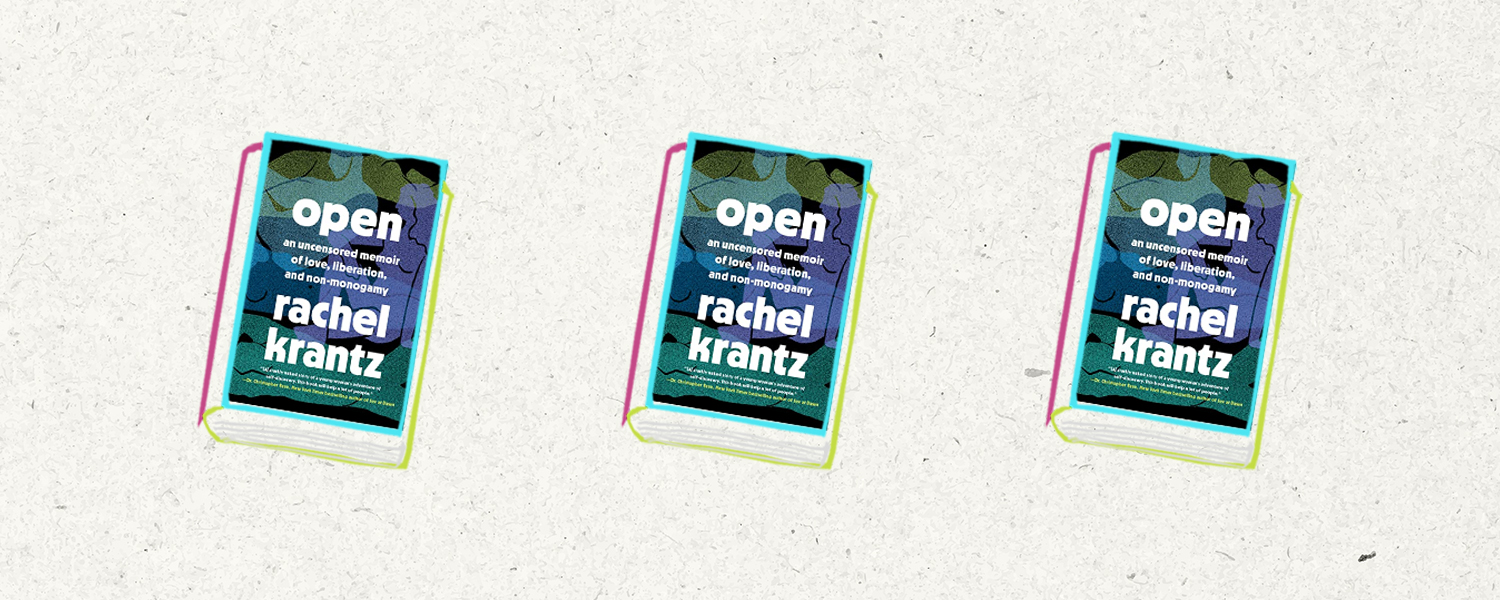
For Rachel Krantz, an open relationship changed her life. Krantz, a founding editor of Bustle, dives into her non-monogamous relationship that began with Adam in 2015. Actually, let me just give you the description of “Open” because it sums it up much better than I will be able to: “When Rachel Krantz met and fell for Adam, he told her that he was looking for a committed partnership—just one that did not include exclusivity. Intrigued and more than a little nervous, Rachel decided to see whether their love could coexist with the freedom to date other people. Could they strike an exquisite balance between intimacy and independence, and find a way to feel passion for one another once the honeymoon phase ended? For Open, her extraordinary debut memoir, Rachel interviewed scientists, psychologists, and people living and loving outside the mainstream as she searched to understand what non-monogamy would do to her heart, her mind, and her life. From exploring Brooklyn sex parties to the wider swinger and polyamory communities, Rachel and Adam attempt to write a new plot for their love story. But they also run up against miscommunications, ancient power dynamics, and seeming betrayals that threaten their love. In these pages, Rachel casts new light on the unique ways coercion and gaslighting manifest in open relationships, and finds herself wondering what liberation really looks like.”
She writes in the start, “This story is true.” She also reminds her readers this story “is primarily centered on two cisgender, white, non-disabled, U.S.-city-dwelling, middle-class, child free, college-educated, thin, liberal, often-assumed-heterosexual, Jewish people in an open relationship,” imploring them to seek out other narratives of non-monogamy. But if you’re looking for somewhere to start with non-traditional stories of relationships, you can’t go wrong with “Open.”
Read if you’re into: compelling, researched memoirs. The Jewish angle: Author Rachel Krantz is Jewish, and the Jewishness of her relationship with Adam comes up throughout “Open.” Get it here.
Other Jewish books of note:
- “Always Remember Your Name: A True Story of Family and Survival in Auschwitz“ by Andra and Tatiana Bucci is about two Jewish sisters who survived Auschwitz and Mengele’s deadly experiments. (Jan 18)
- Jewish author Kathryn Shulz’s memoir “Lost & Found” is a powerful account of finding love right before her father dies. (Jan 11)
- The complete story of the Wannsee Conference, the meeting that paved the way for the Holocaust, is meticulously told in “Wannsee: The Road to the Final Solution” by Peter Longeric. (Jan 3)
- “The Stars Are Not Yet Bells” by Jewish Muslim author Hannah Lillith Assadi in which “an elderly woman confronts a lifetime of secrets and betrayal, under the mysterious skies of her island home.” (Jan 11)
- Dana Schwartz, a Jewish author, returns with a gothic romance, “Anatomy: A Love Story,” between Hazel, a woman who wants to be a surgeon, and Jack, a resurrection man, in Edinburgh. (Jan 18)
- “Chasing History: A Kid in the Newsroom“ by Carl Bernstein is the long-awaited memoir from the Jewish pioneer of investigative journalism. (Jan 11)
- Alwin Meyer’s “Never Forget Your Name: The Children of Auschwitz” “is the culmination of decades of research and interviews with the children [who survived Auschwitz] and their descendants, sensitively reconstructing their stories before, during and after Auschwitz.” (Jan 18)
